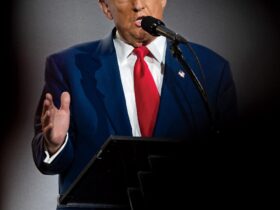
The new government in Argentina has announced a sharp cut in government subsidies and a significant devaluation of its currency. This is in its bid to reorganise the country’s downward spiralling economy.
The United States dollar will now trade at 800 pesos, up from the previously pegged 400, marking a 50% devaluation of the currency.
This decision comes on the heels of President Javier Milei’s promise of reforms. Milei, a libertarian economist who is having a decisive first week in office, stressed that the country did not have the time to explore alternative solutions amid an impending collapse.
He had announced shortly after his swearing-in that he would radically reduce government spending, which immediately led to the merging of 18 ministries into nine.
READ ALSO: Group Refutes Social Media Claims, Urges Gov Otti’s Action on Port Harcourt Road Project
Argentina currently grapples with economic issues, including a staggering 143% annual inflation rate, a sharply depreciated currency, and a high poverty rate affecting four in 10 Argentines. The country also faces a substantial fiscal deficit, a $43 billion trade deficit, and a formidable $45 billion debt to the International Monetary Fund (IMF), with $10.6 billion due by April.
The IMF welcomed the steps, viewing them as a positive foundation for further discussions on Argentina’s debt. Milei said the adjustments would predominantly impact the state rather than the private sector, positioning them as the initial steps toward economic recovery.
The 53-year-old economist rose to prominence with his candid critiques of the political establishment, securing a congressional seat and ultimately winning the presidency. He is expected to face pressure from opposition lawmakers and affiliated unions.







Leave a Reply